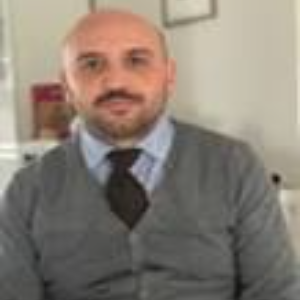Title : The addicted person World of life and synthetic psychosis. A new perspective from a phenomenological and a psychopathological point of view
Abstract:
This talk intends to examine, both from a psychopathological and a phenomenological perspective, the state of “being-at-the-world”, which is common in individuals with drug addiction. Past abuse, as well as present abuse, are crucial in the modification of the psychiatric impact in the history of drug abuse. The former drug lifestyle characterised by the use of heroin led to a form of psychosis which is known with the symptomatological expression as basic psychosis. On the other hand, the contemporary poly-abuse of novel psychoactive substances leads to what is called a synthetic psychosis: a very rich paraphrenic state with continuous hallucinations caused by a mental automatism syndrome and secondary (interpretative) delusions. From a phenomenological point of view, all addictions lead to the final collapse of the Dasein structure (the constitution of the being-in-the-world-with-others). Subsequent to having travelled down many different psychopathological pathways, many addicts remain without the spatial-temporal “here and now” dimension. This makes it impossible for them to stay in a space-with-others and to project themselves in time. The result of this time/space cleavage is emptiness. The world-of-life of the addictive persons is conditioned by the presence or absence of the narcotic and psychostimulant substance. Whereas in normal conditions we have a fluid intentionality and our common sense is the obviously pre-reflexive result of this situation, under the influence of a drug intoxication we lose this intentional stability and, as a consequence, suffer from a kind of intentional instability, which we can identify with the term fluttering world. There is no present, no past, no future. Having lost the connection of interior time all the drug addict has left is the transient moment of satisfaction. On the other hand, following chronic drug assumption, which results in desinsitivization of substances, we have a sort of an intentional dramatic capture or seizure of the world, which we can call frozen world. His intentionality is coagulated, time is insular and has been reduced to a pure frozen present without past and without future until the complete loss of the passing of time is experienced. What’s happen in the state of acute drug deprivation? When the patient experiences craving, both past and future have been lost. The past is reduced exclusively to “the last time in which I have taken drugs”. Intentionality is totally directed to the search of substances. When the patient resists to relapse he lives a sort of depressed lucidity: this is the sign of detoxication. The structure of lived time experience is completely different from the structure of lived time in normal life and in depressive experience. In these addicted related conditions is the reduction of the present, without past and without future, the essential characteristic. The final collapse of the “Addictive Dasein” is a sort of being-in-nothingness. It is very difficult to treat this existential situation, which is characterised by patients frequently dropping out of conventional treatment, the loss of the being-in-the-world structure, boredom, emptiness, dread, anger, lack of meaning, loneliness and isolation. Dasein Group- Analysis (an original interpretation and application of Binswanger’s Dasein-Analysis) is proposed and discussed. Unlike Dasein-Analysis, this approach applies phenomenology, beyond the classic pair of analyst and patient, to a group of people composed of doctors and patients, in which everyone is simply a human being in the world.




